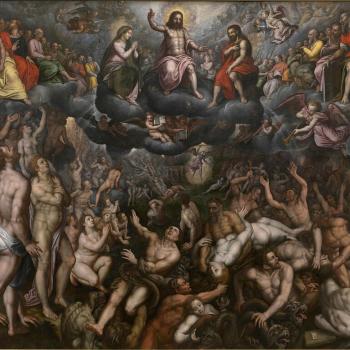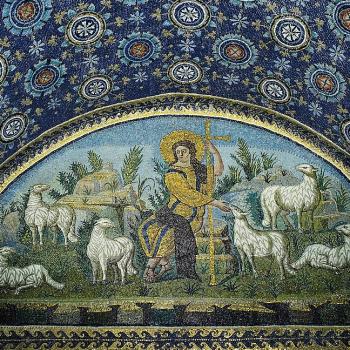
Extremes can destroy us. We can find many examples where something which is good loses its goodness when it is taken to an extreme. We can see this in the foods we eat. Many nutritious foods will end up being poisonous if we eat too much of them at a time. We can see this also with medicine. The right dose can save lives; too high a dose, and they can kill. The same, then, is also with many other goods. They are good, but if we engage them in an immoderate manner, that good can either become lessened or completely undermined. Sadly, we are often led to accept extremes, either through our own faulty reasoning, or by what others tell us, where we accept that if something is good, the more we have it, the better everything will be. In the end, one of the greatest dangers is for us to take some particular good, exaggerate the kind and quality of goodness in it, because, if we are not careful, we, or someone else, can be led to treat it as the absolute good (which is how idolatry develops).
Engaging extremes in society ultimately ends up dehumanizing people, as those who do not embrace those extremes, those who are unable to follow through with them, are seen as less than human, indeed, as standing against that which is good and true. That is, they are seen as evil, worthy of being punished if not exterminated.
Again, it is important to note that the reason we come to embrace extremes, either in our own lives, or in society, is because of the irrational assumption that some particular good should be absolutized, or at least treated as a greater good than it is. What good is denied, or undermined, serves as the foundation by which some evil can rise up and gain some power over us. Once society embraces some dangerous extreme, it ends up undermining its purpose, as the common good is denied, and many people who should be helped are hindered if not hurt as a result. When society creates laws which promote the extremes it has embraced, they end up allowing little to no room for people to question those laws. Those who do, are treated as corrupters of society. Those who do not follow them are seen as evil. We also end up doing the same thing in our own personal lives, as St. Gregory the Theologian understood, which is why he said we should follow the middle path between passionless reason and emotion, pointing out how both are important and goods which need to work together, lest we end up becoming inhumane monsters:
I don’t praise either excessive passionlessness or extreme emotionality; the former is inhuman, the latter unphilosophical. The one who treads the middle path, however, ought to appear more philosophical than those who cannot control themselves at all, but more human than those who practice philosophy without moderation. [1]
Of course, those who promote a virtue in the extreme suggest that the virtue itself is being rejected when that extreme is rejected. We constantly hear this response to people who suggest we should look at and engage a variety of virtues, instead of focusing merely on one in our lives (or in our civic duty). The reality is that, as virtues are holistic, and work and interrelate together, taking one virtue to an extreme undermines that virtue, which is why, when virtues or looked at and examined in such extreme conditions, they end up becoming self-contradictory.
No virtue exists in and of itself; all virtues, all qualities and actions which are designated as good are good insofar as they connect to and come from the absolute good. No virtue, no particular good, can be the source and foundation of its own existence; rather, all particular goods exist in an interdependent matrix, one in which each particular good relies upon each other, and the absolute good, for their own particular goodness. This is why taking a virtue, a good, and exaggerating it, making it independent from the rest of the virtues and goods, undermines its foundation, and in doing so, ends up making it not-good, as it becomes disconnected from what gives it its goodness. Each good, taken in an extreme, being treated as a good in and of itself, becomes a simulacra of the good under discussion instead of the goodness itself. This is why, for example, tolerance is good, but extreme tolerance, the kind which promotes tolerance of all things without exception, is not, because the absolutization of tolerance undermines all other virtues, all other goods, which must be integrated with tolerance. Tolerance without justice, tolerance without the promotion of the common good, tolerance without moderation is not proper tolerance, but the illusion of it. The same can be said with many other virtues and goods which we promote, such as justice: justice without mercy eventually proves to be unjust. No matter the virtue, we find this problem emerges. Taking it to an extreme undermines its own value. This is why St. Hildegard could say that “ethereal” virtues needs to be moderated so that they do not become imbalanced in us:
Where such lack of moderation prevails, the ethereal virtues (that is, humility and the beautiful flowers of love) perish, because immoderate abstinence lacks the viridity of the virtues. For immoderate abstinence breeds in an arrogant boastfulness, which has no foundation; and, besides, it produces many terrors, which appear to be holy, but are not.[2]
Each particular virtue needs all other virtues, with each virtue engaged in proper moderation, both in society, but in each and every person as well. To be sure, this does not mean every virtue is equal to every other virtue, or that they should exist in the same proportion in every society or every particular person. We need to promote some virtues more than others, while still not neglecting any particular virtue, and, when some of the more important virtues are being undermined, we must focus on them more than lesser virtues. Christianity teaches us that the most fundamental of the virtues, the one which we must embrace above others and use to harmonize the virtues together, is love. Love, likewise, will tell us the importance of mercy, because, without mercy, despair easily settles in, making people give up trying when they fail to do some particular good. “It has therefore been demonstrated to you that not only fasting, but all the other virtues as well totter without mercy.” [3] Or, as St. Leo the Great said, all the virtues are as nothing, that is naked, without charity (love):
May the people of God be holy, may they be kind; holy, to refuse forbidden things; kind, to do what is commanded. Although it is a great thing to have a right faith and sound doctrine, and worthy of much praise to be circumcised in appetite, to have gentle meekness and pure chastity, nevertheless, all virtues are naked without charity, nor can nay excellence of life be called fruitful which love has not brought to birth. [4]
Tolerance is important, but it is not proper tolerance when it loses sight of justice. Justice is not just when it loses sight of mercy. Mercy is not mercy when it loses sight of the greater good. The greater good is not the greater good if it loses sight of the various particular goods emerge from it. Every virtue, every good thing, must come together and serve each other; our virtues stand and fall together, and with them, so do we. This is why it is important we embrace the so-called middle path, the way beyond extremes, for the extremes are what undermine the virtues by trying to essentialize and absolutize particular (relative) goods, and the distinctions which make for such good. We must neither deny the relative goods, and the distinctions between them, nor the essential unity which lies behind all those distinctions. Why? Because God is the source and foundation of the absolute good, and can be said (in a conventional way) to be the absolute good. God is one and without parts, but we know and understand God, not in God’s singular transcendence, but in the actions of God, each which can be given a name, each which represents and serves as a foundation for one of the relative (or particular) goods. Those goods are all one in God, and yet, they are relatively distinct from each other, which is why we can apprehend them in our engagement with God. God would not be God without any of them, as well with the infinite number of other actions and divine activities which we do not know, but, we would not be able to apprehend anything of God if we could not apprehend those relative distinctions which emerge from the absolute. Thus, engaging moderation is itself a way to understand plurality and unity as they exist in God, while immoderation ends up undermining either the plurality or the unity in God, leading us to a bad understanding of God (or, as we said earlier, to idolatry). That is, just as extreme can and do cause us much pain and harm, destroying us and our humanity, our embrace of extremes will end up harming our destroying our notion of the divine, and with it, our notion of what is or is not good.
[1] St. Gregory of Nazianzus, Gregory of Nazianzus’s Letter Collection. Trans. Bradley K. Storin (Oakland, CA: University of California Press, 2019), 186 [To Stagirius, Ep. 165].
[2] St. Hildegard of Bingen, “Letter 234” in The Letters of Hildegard of Bingen. Volume III. Trans. Joseph L Baird and Radd K Ehrman (Oxford: Oxford University Press, 2004), 33.
[3] St. Peter Chrysologus, Selected Sermons. Volume 2. Trans. William B Palardy (Washington, DC: CUA Press, 2004),172 [Sermon 42].
[4] St Leo the Great, Sermons. Trans. Jane Patricia Freeland CSJB and Agnes Josephine Conway SSJ (Washington, DC: CUA Press, 1996), 207 [Sermon 48].
Stay in touch! Like A Little Bit of Nothing on Facebook.
If you liked what you read, please consider sharing it with your friends and family!
N.B.: While I read comments to moderate them, I rarely respond to them. If I don’t respond to your comment directly, don’t assume I am unthankful for it. I appreciate it. But I want readers to feel free to ask questions, and hopefully, dialogue with each other. I have shared what I wanted to say, though some responses will get a brief reply by me, or, if I find it interesting and something I can engage fully, as the foundation for another post. I have had many posts inspired or improved upon thanks to my readers.












